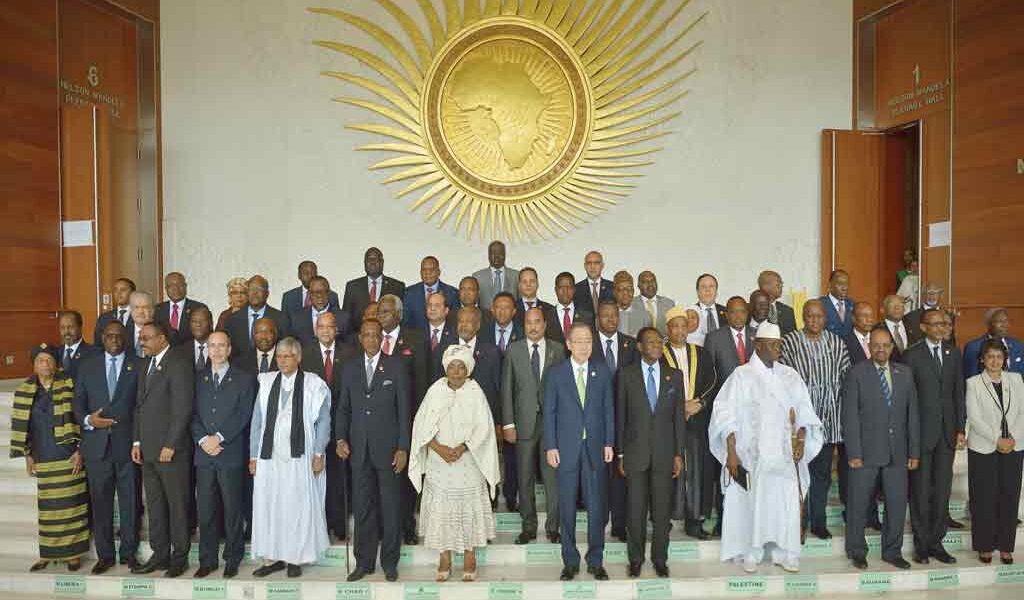Frik Landman
Africa’s estimated 11 million managers in government, business and civil society have to step out of the current realities of Africa. They will have to consider and give a meaningful answer to an ethical leadership dilemma and view it as: Are we, together, willing and able to choose responsibly to build the kind of Africa that the AU holds up to us, using the immense resources we have at our disposal?
The African Union Vision 2063 provides Africans with a normative future that, at the same time, calls for engagement to build an integrated, prosperous and peaceful Africa, an Africa driven and managed by its own citizens, and representing a dynamic force in the international arena.
The question is how will we recognise this future state of affairs? The African Union (AU) offers an overarching legend for this future landscape. We will:
• enjoy inclusive and sustainable growth with all stakeholders respecting our ecological constraints;
• live on an integrated continent, making optimal use of our interdependency;
• experience the safety that responsible governance, respected human rights, and the upholding of the rule of law brings;
• raise and educate our children in a peaceful and secure environment where quality of life is considered seriously;
• thrive in our cultural diversity, guided by an ethos where we value fairness and equality for all;
• be of service to others as a people-driven society, focusing on women and youth in particular; and
• take our place centre stage as a resilient global player.
This is ultimately an ethical question as the vast endowment of natural resources of Africa are kept in mind. “We have at our disposal 64% of the population under 24 years of age; and, regrettably, the current sum total of all our leadership effort (thinking, doing and being) is that we remain the poorest continent in the world – with numerous pockets of excellence in between.
On this poor continent, our mind-set hides the germ of an unfortunate mind illness: choosing the role of victim.
Former President Thabo Mbeki so rightly said we must stop being and acting as victims. Now is an apt time for leaders to put their convening power to good use and not only to bring some of the best minds to think through and design the most impactful interventions towards Africa’s future development, but to develop a critical mass of leadership minds as part of the African Renaissance.
That is indeed where an awakening starts, in the mind.
Africa’s problems is a complex system of interlocking challenges. It is essential that the future of Africa is not viewed exclusively through an economic lens. The continent’s focus should be transdisciplinary, where we apply thinking and design to our systemic problems which cannot be dissolved by a singular view.
The onus is upon leaders to bring together academics, practitioners, scholars, scientists, and leaders from government, business and civil society in a mindful effort to dissolve systemically the pressing problems facing Africa. It requires a pragmatic emphasis on transdisciplinary engagement – in a way that traditional disciplinary expertise is unable to help.
We are in the Information Age, dealing with a knowledge economy, while knotted into a globally competitive economy.
Higher education is a central piece of the knowledge economy and can contribute much to the development of management and leadership, using platforms such as business schools and schools of management.
Africa has incredible talent. This talent needs to be developed, as – of all the capitals – human capital development ought to be at the base of our theory of change. As Robert Lucas says, “The main engine of growth is the accumulation of human capital – or knowledge – and the main source of differences in living standards among nations is a difference in human capital. Physical capital plays an essential but decidedly subsidiary role”.
In considering all of the above in the context of the AU vision, I am reminded of the words of Sumantra Goshal from the London Business School: “You can’t manage third generation strategies, with second generation organizations (institutions), and first generation managers (leaders)”. Our AU vision and its metrics offer a third generation strategy. The rest must be brought up to this level.
Frik Landman is the CEO of USB Executive Development (USB-ED), the management development arm of Stellenbosch University.
Frik.landman@usb-ed.com website: www.usb-ed.com

